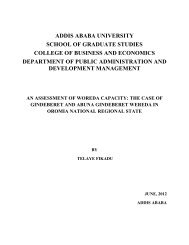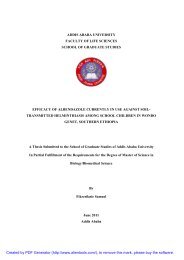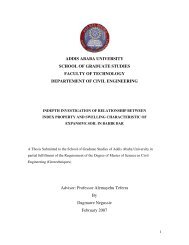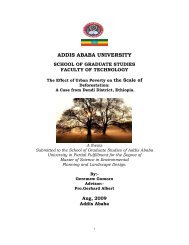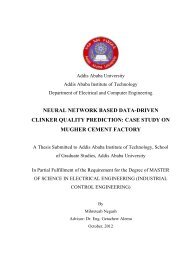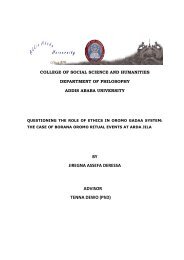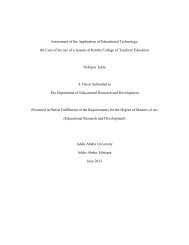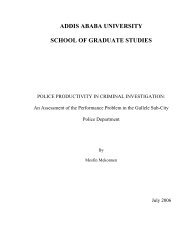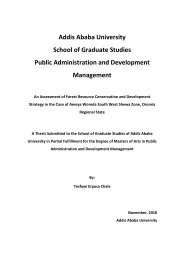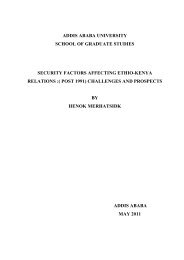FACTORS THAT CONTRIBUTE TO THE PROBLEMS EFL ...
FACTORS THAT CONTRIBUTE TO THE PROBLEMS EFL ...
FACTORS THAT CONTRIBUTE TO THE PROBLEMS EFL ...
Create successful ePaper yourself
Turn your PDF publications into a flip-book with our unique Google optimized e-Paper software.
includes activities that let the students practice deciding whether information in a<br />
section of a talk is important, identifying where a section of a talk begins and ends,<br />
and explaining how the various parts of the talk are related. This part also includes<br />
transition markers (words and phrases).<br />
Unit 4 contains the issues involved in recycling, i.e., in reformulation and in<br />
repetition. This part includes activities that let the students take note of main points<br />
they missed in a lecture when the points are recycled. This is believed to help the<br />
students practice listening less intensively whenever a main point that they already<br />
understood is recycled.<br />
Unit 5 contains activities that let the learners apply strategies which help<br />
them to identify cause/effect relationships in arguments which are developed by a<br />
speaker. This part emphasizes markers of cause/effect relationship that usually<br />
appear in a spoken language.<br />
Unit 6 contains activities that let the learners practice identifying a contrast<br />
relationship of ideas developed by a speaker. This part also includes background<br />
reading, contrast markers (words and phrases), note taking, and prediction<br />
practice.<br />
Each unit focuses on discussing issues related to developing the learners’<br />
listening skill. The issues are presented in the form of activities which enable the<br />
learners to develop concepts related to the given listening skills. Similarly, each<br />
unit (except the first unit) has also a corresponding audio-cassette with a total of<br />
one hour long.<br />
The stories in the audio-cassette (that accompany the module) are narrated<br />
by two native speakers of English (with US accent), a man and a woman, who<br />
were a staff member of the English department of Bahir Dar University. After the<br />
practices of all the activities of the module, it is assumed the students will be able<br />
to make use of the knowledge and skills they gained in the course in various real<br />
life listening situations.<br />
As far as the topics are concerned, the major listening topics of the module<br />
are: (1) Urbanization, (2) Tourism, (3) Preventive Medicine, (4) Food Supply, and<br />
(5) Microchip Technology. There are also sub-topics under each of the above<br />
major topics. The listening activities of the module are based on each sub-topic.<br />
77




